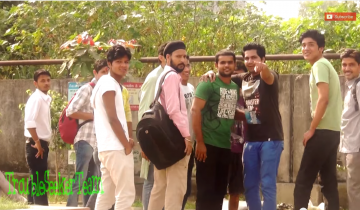Triple Talaq Ban- Muslim Women Breathe a Sigh of Relief

Introduction
Time and again, history has witnessed great revolutions- some at an international level like the worldwide cry against imperialism, and others like the Lokpal Bill agitation at smaller levels, but still great nonetheless. Revolution buds out of repression and a sudden outburst of the anger boiling inside people. India recently saw and finally heeded to the plight of Muslim women under the practice of Triple Talaq or instant divorce through which a Muslim man can divorce his wife by saying ‘talaq’ thrice. It can be done orally, via letter or even a text message. The historic judgment passed by the Supreme Court declared Triple Talaq unconstitutional by a 3-2 majority. Justice Joseph in his judgment said, “Merely because a practice has continued for long, that by itself cannot make it valid if it has been expressly declared to be impermissible.”
Why This Ban Is Necessary?
The major grounds on which the practice of Triple Talaq is banned is the arbitrary and immoral use of this practice by Muslim men. The conditions that the practice is based on is highly unjust for women. The Muslim men do not need to give a reason for divorcing their wives. The entire exercise does not provide for a solution to whatever the problem the couple is going through. This makes it impossible for women to put forth their point of view. People argue that the practice is an integral part of Islam, but had that been the case Islamic countries like Pakistan and Bangladesh would advocate this practice and not ban it.Another fact that makes the practice unreligious is that the unilateral, instantaneous Triple Talaq finds no mention in Sharia or the Koran, which further points to the theory that this practice was introduced by Muslim leaders to give men more power. A case study by BMMA found that 92.1% of Muslim women want this biased system of verbal triple Talaq to stop.
Once that Triple Talaq is banned, Muslim men and women will have to go through the judiciary if they seek a divorce. It will enable better administration and the women will find a platform to voice their grievances as well.
The Other Side of the Coin
That brings me to another very important issue. Women have to go through an entirely different process to get divorced called Talaq-i-Tafweez. Under this system, the wife needs to be authorized to practice Talaq-i-Tafweez. This right is delegated by the husband to the wife at the time of marriage. The wife might need to pay her husband to get divorced as she needs his consent. A divorce through Talaq-i-Tafweez is declared valid only if the reason for divorce cited by the wife is one of the prescribed incidents. That condition is mostly when men are cruel to their wife or incapable of taking care of her financially. In this sense, the grounds on which women can seek a divorce from her husband are very limited and unjust. It nowhere mentions the lack of happiness in married life as a potential ground for divorce which is a very common objection of Muslim women.
Case Studies
Various case studies by BMMA reveal the harsh conditions that Muslim women had to go through because of being divorced through talaq-e-biddat.
Married at the age of 22 and mother of a two-year-old son, Sabiha was facing difficulties in her married life. Her husband would often beat her up, mistreat and abuse her referring to a low dowry brought by her. She was even thrown out of the house forcefully. She received a ‘Tehriri talaq’ from her husband in the form of a letter. On being approached, the Darul Qaza confirmed the divorce without even speaking to the woman as to whether she had received her Meher or as to how she was going to bring up her child and relieved the husband of all his responsibilities. She has neither received her Meher nor does she get any assistance at all for their son from her husband.
Another case was Majidi, who was married at the age of 29. Despite constant problems in her married life, she wanted to stay with her husband and family. Surprisingly, one day, her husband informed her that he had divorced her. Startled by this sudden revelation, she approached BMMA and when they demanded legal papers, her husband produced a stamp paper with the signatures of two witnesses stating that he had divorced her. What was most surprising was that the stamp papers had a 2010 date on them whereas Majidi was informed of this only in 2012. On approaching Darul Qaza she was informed that nothing could be done as the divorce was valid.
The Road Ahead
These case studies highlight what hardships Muslim women go through day in and day out because of talaq-e-biddat. The Qazi courts entrusted with providing them justice failed to do so in many instances. Making provisions so that Qazi courts give judgments that do not violate the basic rights and put rationality above religion is a very crucial step that the government should take. As Majidi Begum said, decisions like that in her case that are being taken by religious leaders need to stop and the law of the land must intervene as it is destroying the lives of so many women. Cases like that of Sabiha Khan and Majidi Begum also show that divorced women often do not get the maintenance that they are entitled to. It is a pity that maintenance is still not fixed so that a woman does not have to run pillar to post for justice. We need to bring about laws based on the principles of justice and fairness enshrined in the Quran.
People contend that banning Triple Talaq by itself cannot create a paradigm shift in the status of Muslim women in Indian society. While as an isolated decision it brings a change of comparatively less quantum, when combined with simultaneous such changes in the Muslim Personal Law, it can prove to be one of the greatest steps towards an equitable society.
Image Attribute: Pixabay




